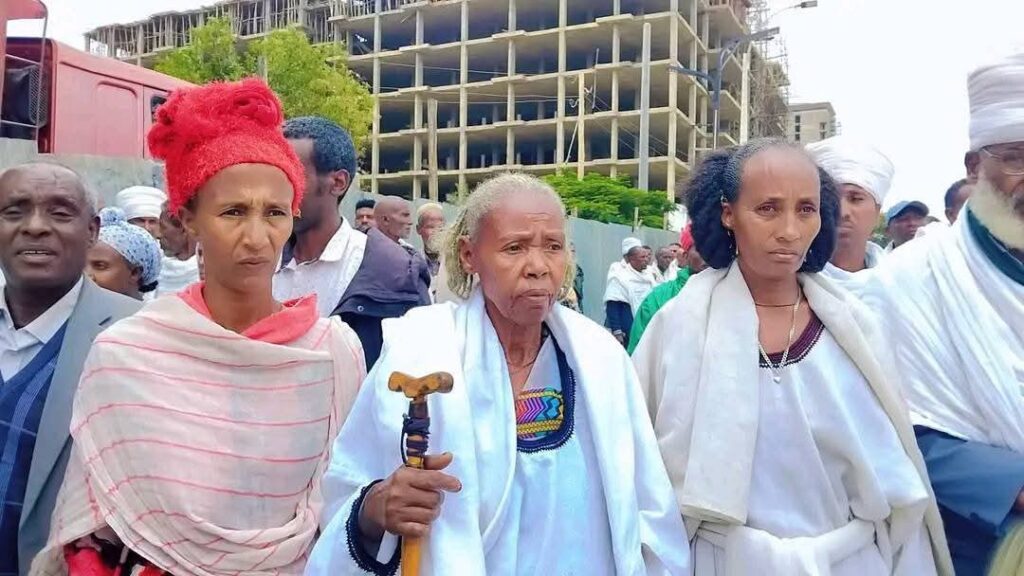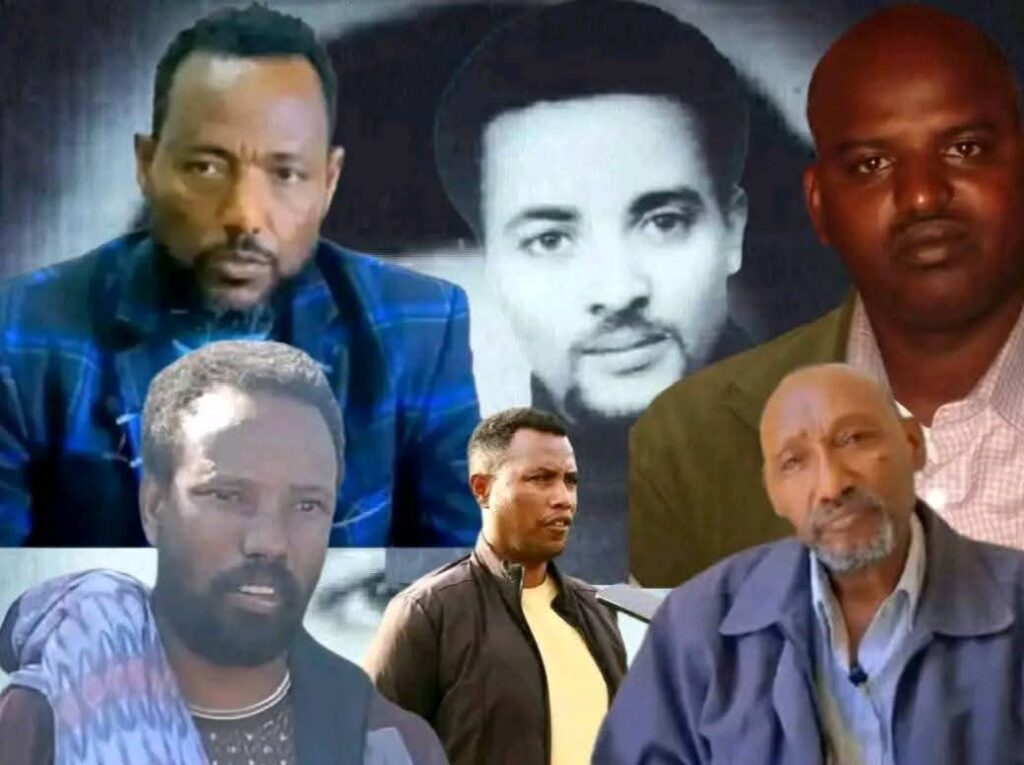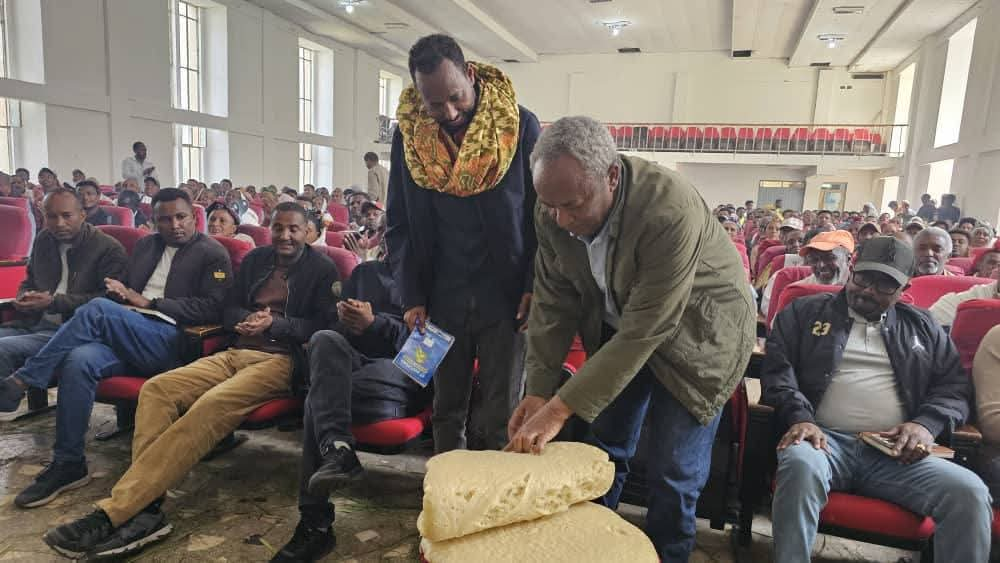Mekelle፡Addis Abab,Telaviv, Nairobi, Pretoria, London, (Tigray Herald).
Tigray interim president faces backlash as reinstated Zoba Debub cabinet sparks protests
By Gebre Tatios
A controversial decision by Tigray’s interim president, Lt. Gen. Tadesse Werede, to reinstate the former zonal cabinet of the Southern Zone (Zoba Debub) has triggered widespread public opposition, raising fresh concerns about legitimacy, decentralization, and political accountability in the war-torn region.
In a move aimed at reorganizing zonal governance, Lt. Gen. Tadesse announced on July 23 that he would assume direct control of Zoba Debub and reappoint its former administrators. The announcement, however, was swiftly followed by mounting unrest across the zone. Local leaders, civic groups, and ordinary citizens denounced the decision as a regressive step that ignores the will of the people and repeats the exclusionary tactics of previous administrations.
Residents from various districts Raya traveled to the regional capital, Mekelle, on July 25 to voice their grievances in person. Two days later, on July 27, large gatherings in the city of Maychew condemned what they described as a political imposition orchestrated without public consultation. Multiple towns and villages across Zoba Debub have since witnessed peaceful protests and community meetings demanding the reversal of the appointments.

“This is not just about personnel it’s about process, respect, and the people’s voice,” said a local elder in Maychew. “Recycling the past without accountability will only deepen public resentment.”
Legal authority vs. popular legitimacy
Tigray’s interim administration was established 2020, which grants the president full authority to appoint or remove zonal officials. However, critics argue that these powers must be exercised transparently, with local input and sensitivity to the region’s volatile political climate following the devastating two-year war.
While the law may back the president’s actions, the optics and timing of his decision have undermined his credibility among some constituents.
“This is about more than legality,” said Haftu Kiros the administrator of Southern Tigray Zone. “It’s about legitimacy, trust, and the painful lessons we should have learned from the war.”

Déjà vu of Getachew Reda’s leadership woes
Observers have drawn parallels to the tenure of former interim president Getachew Reda, who also faced resistance when attempting to replace zonal administrators seen as loyal to the TPLF politburo. His efforts to remove controversial figures such as Misleane, the administrator of Sheraro, were blocked by entrenched party networks.
Getachew himself was reportedly sidelined by TPLF insiders, despite nominally serving as the head of Tigray’s interim government. This intra-party power dynamic where elected or appointed officials lack actual control continues to haunt the post-war transition.
One Mekelle-based political analyst noted: “Tadesse is caught in the same trap. Despite holding office, he lacks real executive control. The party machinery continues to override institutional governance.”
Calls for transitional justice and public apology
Amid rising tensions, prominent community figures, religious leaders, and scholars have called for an open process of transitional justice, including formal acknowledgments of past mistakes, public apologies, and structural reform.
“There can be no genuine renewal in Tigray uforleaders confront their past,” said a university professor from Axum. “The same faces, the same patterns, and the same disregard for popular opinion will doom any hope of democratic transition.”
Calls for a broader national reconciliation are growing, with many advocating for Tigray’s reintegration into Ethiopia’s political agenda not through coercion or closed-door politics, but through an inclusive and transparent process.

The bigger picture
The developments in Zoba Debub reflect a deeper crisis facing Tigray’s interim administration: how to navigate a post-conflict political landscape where the public is demanding change, justice, and authentic representation, while political elites remain stuck in legacy structures.
Some community leaders have described the reinstatement of former officials as a “benchmarked market of discontent” a term reflecting how public sentiment is increasingly used to measure the success or failure of administrative actions.
For now, President Tadesse Werede’s authority hangs in the balance. Whether he can rebuild trust, embrace inclusive governance, and avoid the pitfalls of his predecessors remains to be seen.




